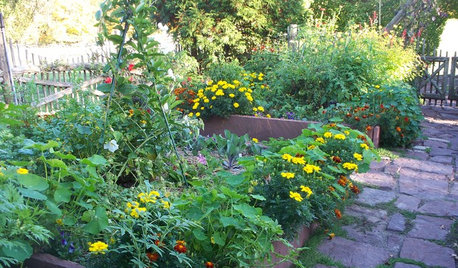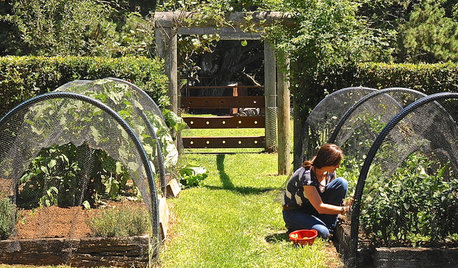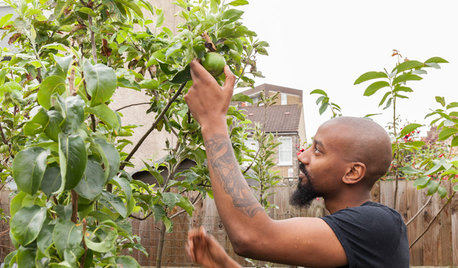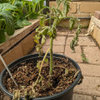Organic Methods of Tomato Fungus Problems
dereckbc
18 years ago
Related Stories

EDIBLE GARDENSSummer Crops: How to Grow Tomatoes
Plant tomato seedlings in spring for one of the best tastes of summer, fresh from your backyard
Full Story
GARDENING GUIDESOrganic Matters: Thwart Insect Pests With Trap Crops
Add a few sacrificial plants to your garden to lure insects away from the harvest
Full Story
LAUNDRY ROOMS7-Day Plan: Get a Spotless, Beautifully Organized Laundry Room
Get your laundry area in shape to make washday more pleasant and convenient
Full Story
GARDENING GUIDESHow to Switch to an Organic Landscape Plan
Ditch the chemicals for a naturally beautiful lawn and garden, using living fertilizers and other nontoxic treatments
Full Story
KITCHEN DESIGN8 Kitchen Organizing Ideas for Messy Cooks
Not the clean-as-you-go type? Not to worry. These strategies will help keep your kitchen looking tidy no matter what your cooking style is
Full Story
FARM YOUR YARDHouzz Call: Home Farmers, Show Us Your Edible Gardens
We want to see where your tomatoes, summer squashes and beautiful berries are growing this summer
Full Story
GARDENING GUIDESGreat Garden Combo: 3 Wonderful Plants for a Deer-Resistant Screen
Protect your privacy and keep deer at bay with a planting trio that turns a problem garden area into a highlight
Full Story
FALL GARDENING5 Ways to Put Fall Leaves to Work in Your Garden
Improve your soil and yard the organic way with a valuable garden booster that grows on trees
Full Story
ORGANIZINGThe Case for Hidden Storage
Imagine how much more peaceful your home would feel with cleared surfaces. And that’s just one reason to stow your supplies
Full Story
GARDENING GUIDESLush, Foodie Abundance in a Small Urban Garden
This modest backyard garden provides its owner with fruit and vegetables all year round, thanks to an innovative low-maintenance approach
Full StorySponsored
Franklin County's Preferred Architectural Firm | Best of Houzz Winner
More Discussions







suze9
honu
Related Professionals
Wrentham Landscape Architects & Landscape Designers · Fort Lee Landscape Architects & Landscape Designers · North New Hyde Park Landscape Architects & Landscape Designers · Ellensburg Landscape Contractors · Ellicott City Landscape Contractors · Fairview Landscape Contractors · Lake Saint Louis Landscape Contractors · Paramount Landscape Contractors · Twin Falls Landscape Contractors · Uxbridge Landscape Contractors · Wayland Landscape Contractors · Wentzville Landscape Contractors · Conyers Siding & Exteriors · New Britain Siding & Exteriors · San Diego Siding & Exteriorsvinemaple
bigbubbacain